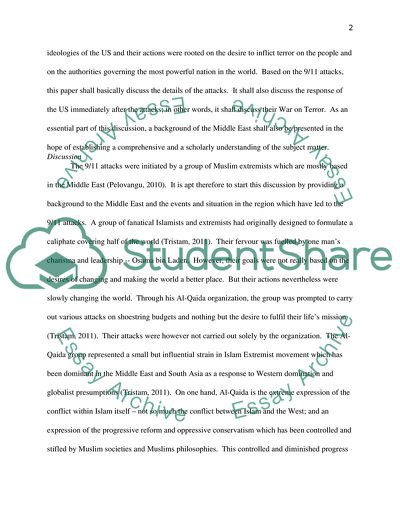Cite this document
(“Foreign Policy of the United States after 9/11 Essay - 1”, n.d.)
Foreign Policy of the United States after 9/11 Essay - 1. Retrieved from https://studentshare.org/social-science/1575125-chapter-1-foreign-policy-of-the-united-states-after-911
Foreign Policy of the United States after 9/11 Essay - 1. Retrieved from https://studentshare.org/social-science/1575125-chapter-1-foreign-policy-of-the-united-states-after-911
(Foreign Policy of the United States After 9/11 Essay - 1)
Foreign Policy of the United States After 9/11 Essay - 1. https://studentshare.org/social-science/1575125-chapter-1-foreign-policy-of-the-united-states-after-911.
Foreign Policy of the United States After 9/11 Essay - 1. https://studentshare.org/social-science/1575125-chapter-1-foreign-policy-of-the-united-states-after-911.
“Foreign Policy of the United States After 9/11 Essay - 1”, n.d. https://studentshare.org/social-science/1575125-chapter-1-foreign-policy-of-the-united-states-after-911.


